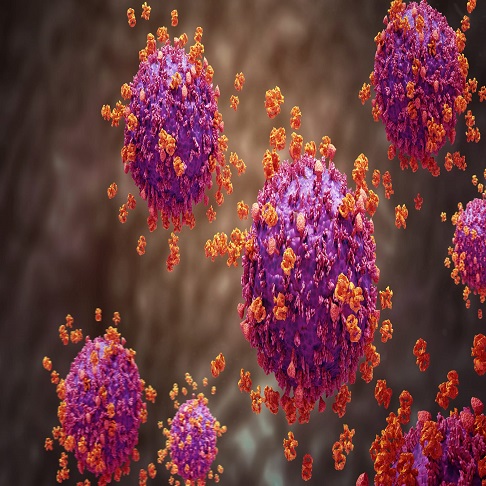Coalesce Research Group warmly invites all the Speakers, Delegates, Researchers, Students and Industrialists to be a part of our Webinar.
International Conference on STDs, HIV-AIDS and Emerging Viral Diseases conducts systematic scientific meetings that address and discussions center on Ending the HIV epidemic and reducing STI transmission and social sciences related to all STDs, including HIV infection. The goal of this Conference is to highlight the services healthcare settings can offer to provide optimal STD care.
International Conference on STDs, HIV-AIDS and Emerging Viral Diseases is scheduled to take place during August 20-21, 2020.
STD Prevention 2020 is themed “Awareness and Prevention-Control of STDs and Emerging Viral Diseases”. This emphases knowledge and exploration in the field of HIV/AIDS, STDs, STIs and other infectious diseases and to exchange, share experiences on all aspects in HIV-AIDS Prevention and STD Control. This is the best opportunity to reach the largest gathering of participants from the Vaccine Immunology community. World renowned speakers and the HIV Vaccine Development scientists Immunological and Biological Challenges are hallmarks of this conference.
In this peak time of struggle our aim is to bring global scientists/researchers and doctors to one platform to share updated information regarding the novel diseases.
Slots Available for
- Online and Offline Virtual/ Video Presentations
- Online and Offline Poster Presentations
Note: Online presentations are delivered during the event through live streaming and Offline presentations are recorded presentations displayed during the conference.
Targeted Audience
- Virologists
- Infectious Diseases Specialists
- Public Health Professionals
- Health Care Professionals
- Microbiologists
- Bacteriologists
- Epidemiologists
- Pharmacists
- Biologists
- Parasitologists
- Researchers and Innovators
- Academic Faculty and Students
- Training Institutes
- Associations, Societies and Professional Bodies
- Medical Colleges, Hospitals and Labs
- Laboratory Technicians and Diagnostic Companies
- Pharmaceutical Companies and Industries
- Medical Devices Manufacturing Companies
- Drug Manufacturing Companies and Industries
- Business Entrepreneurs and Industrialists
Guidelines For Speakers
- Keep the number of slides in your Presentation to a minimum and follow the assigned slots.
- Please stop when signaled to do so by the Chair.
- Personal laptops should not be used unless in any unavoidable conditions.
- The Videos will not be recorded.
- Question Sessions, thanks and acknowledgement of the speakers will take place during the session or after completion of the session, so please stay until the end of the session.
Guidelines For Poster
- Each poster should be approximately 1x1 M in Size The title, contents, text and the author’s information should be clearly visible even from 1-2 feet.
- Present numerical data in the form of graphs, rather than tables.
- If data must be presented in table-form, keep it Simple to be easily understandable.
- Visuals should be simple, clear and bold. Avoid acronyms and mathematical notations as much as possible.
- Posters with 800-1000 words or less are perfect.
- Avoid submitting compactly packed, highly worded- count posters.
- Categorize your poster into subdivisions, e.g., Introduction, Methods, Results; Discussion, Conclusions, and Literature Cited.
- Use bright colors to enhance the better visibility Besides your project, you can also include future research plans or questions.
Opportunities for Conference Attendees
For Researchers & Faculty
- Speaker Presentations
- Poster Display
- Symposium Hosting
- Workshop organizing
For Universities, Associations & Societies
- Association Partnering
- Collaboration Proposals
- Academic Partnering
- Group Participation
For Students & Research Scholars
- Poster Presentation Competition (Winner will get Best Poster Award)
- Young Researcher Forum (Award to the best presenter)
- Student Attendee
- Group Registrations
For Business Speakers
- Speaker Presentations
- Symposium Hosting
- Book Launch Event
- Networking Opportunities
- Audience Participation
For Companies
- Exhibitor and Vendor Booths
- Sponsorships Opportunities
- Product Launch
- Workshop Organizing
- Scientific Partnering
- Marketing and Networking with Clients
Abstract Peer-review Process/Guidelines
- The Reviewing Committee of Addiction Conferences ensures high-quality peer review process for all abstracts submitted to the conference.
- The decision of abstract acceptance will be judged by a panel of experts emphasizing whether the findings and / or conclusions are novel and make useful contributions to the field.
- The committee operates a single / double-blind peer review process for all the abstracts submitted, where both the reviewer and the author remain anonymous.
The following are the steps that each abstract of the Conference undergoes during the process of peer review
- All submitted abstracts are reviewed by internal editorial team to ensure adherence to the conference scope and abstracts which have passed this initial screening are then assigned to the session chair / review committee for evaluation.
- Once the reviews have been received, the review committee decides to accept or reject a manuscript, or to request revisions from the author in response to the reviewers’ comments.
- If the decision tends to be minor revision or major revision, authors will be given 14 days to resubmit the revised abstract.
Criteria to be considered for Scoring
The abstract should be reviewed according to the following criteria:
- Originality of concept/approach and level of innovativeness
- Significance/impact/relevance to conference theme
- Quality of research design/theoretical argument
- Conclusions and interpretations of results
- Presentation style: Coherence and clarity of structure

